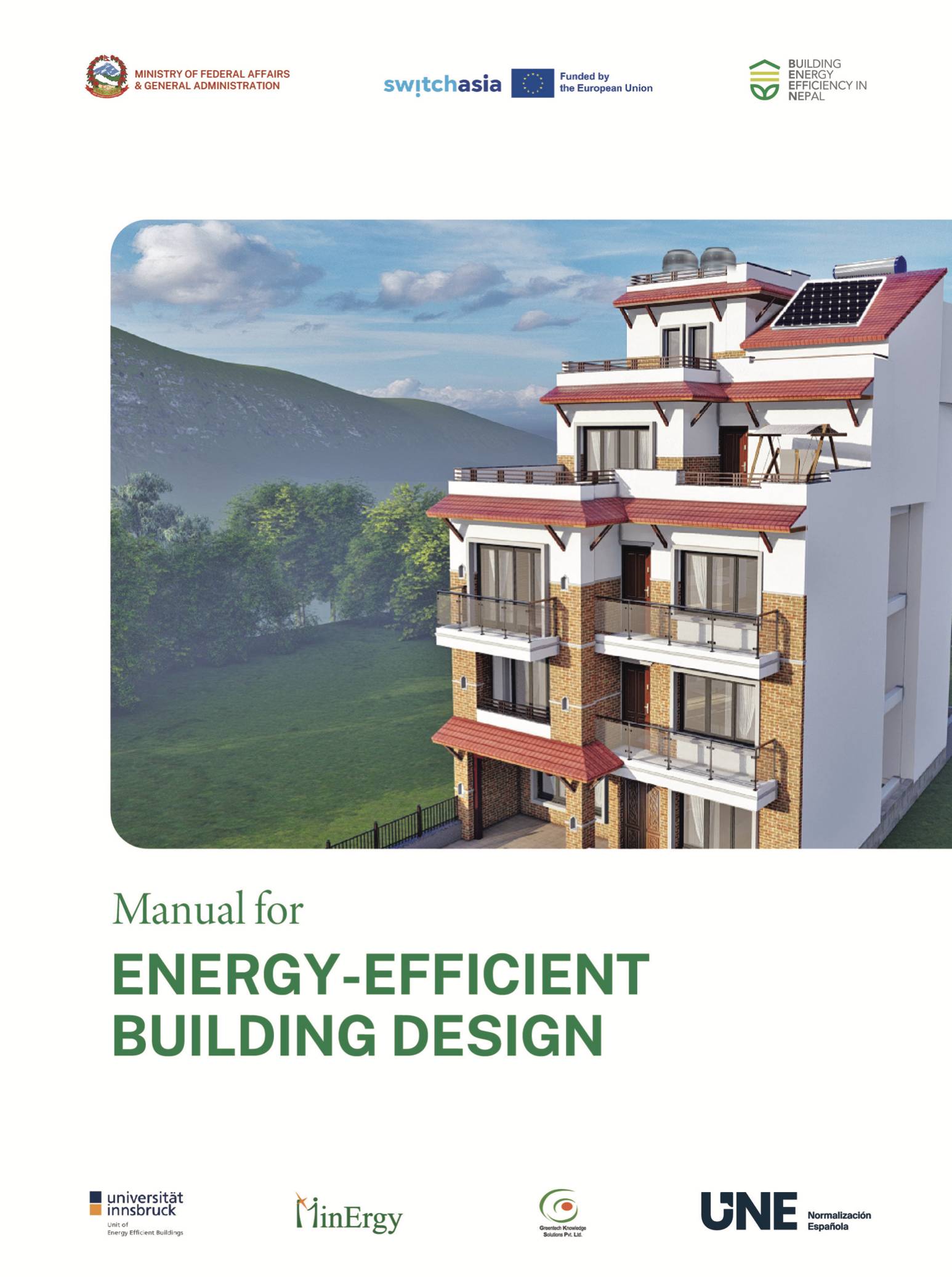
Buildings, built inappropriately, can lock in inefficiencies for decades throughout their operational lifespan of 50 years or more. Improved thermal comfort and energy- efficient buildings, along with increased use of renewable energy, are integral to sustainable development and an improved quality of life.
Nepal is one of the least urbanized, yet it ranks among the top ten fastest urbanizing developing nations. However, over the past few decades, market demands for space have led to buildings being designed without consideration of the local climate, resulting in uncomfortable indoor environments or high energy consumption to compensate for this discomfort. Climate-responsive design and energy efficiency are often overlooked in the planning of new buildings. Consequently, energy consumption in buildings is on the rise. Many of these challenges could be mitigated through improvements in building envelope design, including enhanced insulation of walls and roofs, thoughtful window design and shading to optimize daylight and ventilation, and implementation of double-glazed windows.
One of the main constraints is the limited awareness and application of building physics in designing and constructing energy-efficient buildings. This manual is intended for designers, including building consulting firms, individual architects and engineers who wield significant influence over a building or house owner’s decision regarding design and construction materials. The aim of this manual is to introduce and explain how a building influences the thermal and visual comfort of its occupants. Additionally, it explains passive design principles tailored to the climate zones in Nepal, which consequently help reduce energy requirements in building.
This manual was developed by the EU funded SWITCH-Asia BUILDING Energy Efficiency in Nepal (BEEN) project.


